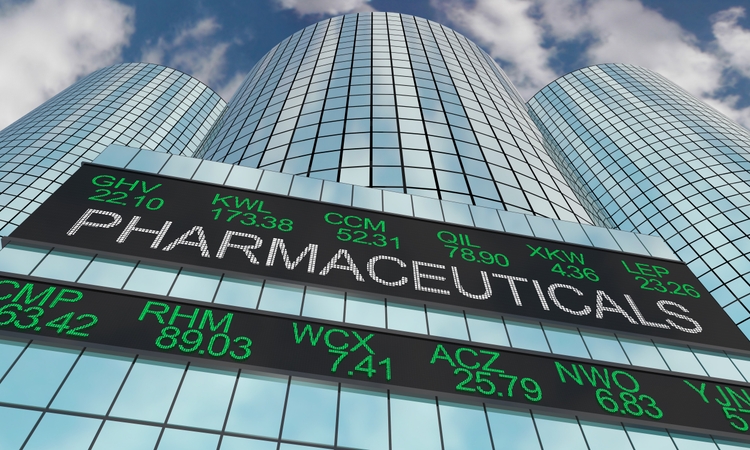Health
Drug Pricing Deal Boosts Shares of Eli Lilly and Amgen

Shares of major pharmaceutical companies, including Eli Lilly and Amgen, experienced significant gains on Wednesday as investors reacted positively to a new drug pricing agreement between Pfizer and the U.S. government. The deal, which aims to control prescription drug costs, has sparked what analysts are calling a “relief rally” on Wall Street.
The agreement is designed to lower drug prices for American consumers, a move that has been met with enthusiasm by investors in the pharmaceutical sector. Eli Lilly, listed on the New York Stock Exchange (NYSE) under the ticker LLY, saw its shares rise by over 5%. Similarly, Amgen, traded on the NASDAQ as AMGN, posted a gain of close to 4% during the same trading session.
Market Response to Drug Pricing Agreement
This surge in stock prices marks the second consecutive day of gains for these companies, reflecting a broader confidence in the pharmaceutical industry following the announcement of the pricing deal. Analysts suggest that the agreement could pave the way for more predictable revenue streams for drug manufacturers, which had been concerned about potential price controls.
The details of the agreement indicate a collaborative effort between Pfizer and the U.S. government to address rising healthcare costs. Wall Street analysts are optimistic that similar agreements could inspire confidence in other pharmaceutical companies as well. The potential for reduced pricing pressures has led to a positive outlook for major players in the industry.
Investors are closely observing how this agreement will influence long-term pricing strategies and market dynamics. The ramifications of the deal extend beyond immediate stock price movements, as it could signal a shift in how pharmaceutical companies approach pricing in the U.S. market.
Implications for the Pharmaceutical Sector
The implications of this agreement are significant, not only for Eli Lilly and Amgen but also for the broader pharmaceutical sector. Companies that can adapt to evolving pricing regulations may find themselves better positioned in a competitive landscape.
As the U.S. government continues to explore ways to manage healthcare costs, drugmakers are likely to face ongoing scrutiny regarding their pricing practices. The recent rally in stock prices suggests that investors are hopeful for a balanced approach that benefits both consumers and manufacturers.
In summary, the recent drug pricing deal between Pfizer and the U.S. has prompted a notable response from investors, leading to gains for key pharmaceutical companies like Eli Lilly and Amgen. As the market digests the implications of this agreement, it remains to be seen how it will shape the future of drug pricing in the United States.
-

 Science2 months ago
Science2 months agoToyoake City Proposes Daily Two-Hour Smartphone Use Limit
-

 Health2 months ago
Health2 months agoB.C. Review Reveals Urgent Need for Rare-Disease Drug Reforms
-

 Top Stories2 months ago
Top Stories2 months agoPedestrian Fatally Injured in Esquimalt Collision on August 14
-

 Technology2 months ago
Technology2 months agoDark Adventure Game “Bye Sweet Carole” Set for October Release
-

 World2 months ago
World2 months agoJimmy Lai’s Defense Challenges Charges Under National Security Law
-

 Technology2 months ago
Technology2 months agoKonami Revives Iconic Metal Gear Solid Delta Ahead of Release
-

 Technology2 months ago
Technology2 months agoSnapmaker U1 Color 3D Printer Redefines Speed and Sustainability
-

 Technology2 months ago
Technology2 months agoAION Folding Knife: Redefining EDC Design with Premium Materials
-

 Technology2 months ago
Technology2 months agoSolve Today’s Wordle Challenge: Hints and Answer for August 19
-

 Business2 months ago
Business2 months agoGordon Murray Automotive Unveils S1 LM and Le Mans GTR at Monterey
-

 Lifestyle2 months ago
Lifestyle2 months agoVictoria’s Pop-Up Shop Shines Light on B.C.’s Wolf Cull
-

 Technology2 months ago
Technology2 months agoApple Expands Self-Service Repair Program to Canada









